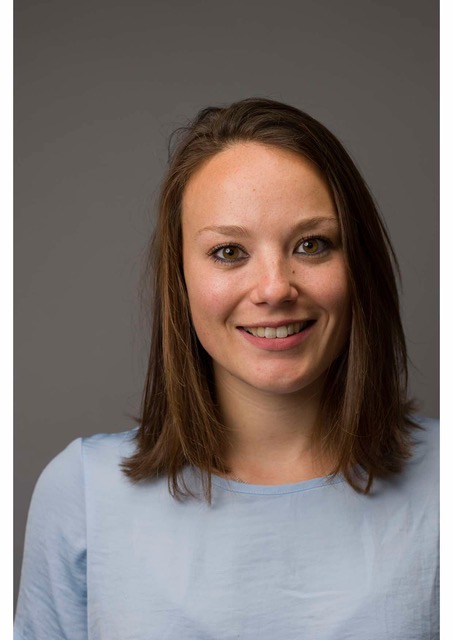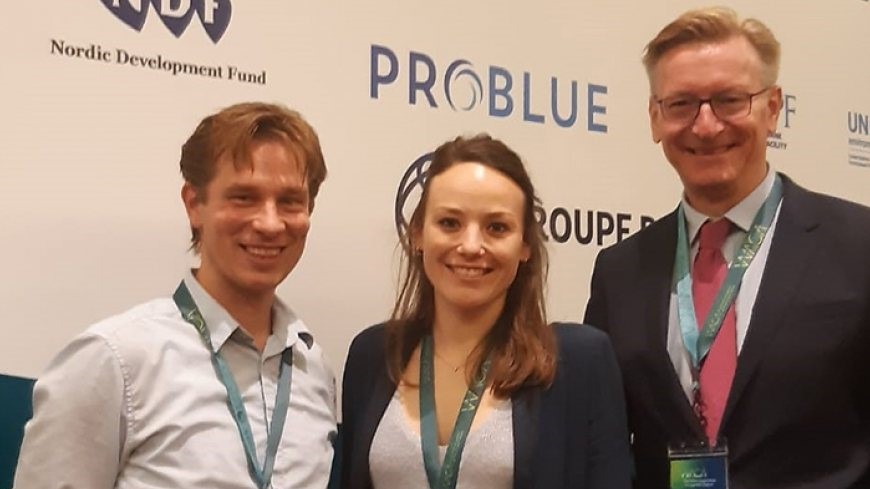Blog |
Dutch Expertise Welcome for West Africa Coastal Management
Coastal erosion and flooding in West Africa severely threaten communities and livelihoods.
Coastal erosion and flooding in West Africa severely threaten communities, livelihoods, safety and investment. There is an urgent need for international partners to mobilise financing through coordinated regional action. The World Bank and Netherlands Water Partnership (NWP) are on their way to formalising their partnership to exchange knowledge, expertise and information, and to increase business opportunities for the Dutch water sector. Last week, NWP’s Josephine Damstra attended the first Finance Marketplace in Ivory Coast, which was organised as part of the World Bank’s West Africa Coastal Areas Management Programme.
‘The World Bank’s West Africa Coastal Areas Management Programme (WACA Programme) aims to boost the transfer of knowledge, foster political dialogue among countries and activate public and private finance to ultimately make households less vulnerable to coastal erosion, flooding and pollution.
In October 2019, government officials and specialists from several West African countries came to the Netherlands for a World Bank study tour organised by NWP on nature-based solutions. The participants were highly interested in the knowledge and expertise the Dutch water sector has to offer, particularly on nature-based water management and flood control measures in cities, rivers and coastal zones. It quickly became clear that a partnership between NWP and the WACA Programme could be a way for West African countries to tap into the Dutch expertise. Thereafter, NWP attended the Finance Marketplace to learn more about the Program and discuss ways for the Dutch water sector to engage in this highly ambitious initiative. The Marketplace responded to West African countries’ request to simplify the process of mobilising investments in coastal resilience. It gave an opportunity for these countries to pitch their highest priority investment needs and for international partners to begin a dialogue to identify potential new projects and means of cooperation.
Effects of flooding and erosion
It is painful to see how erosion and coastal flooding are taking lives and reducing productivity in West Africa. I think this is visible evidence of how climate change is affecting the region’s coastal areas. About 56% of West Africa’s GDP is generated in coastal provinces and this is where one-third of the population resides. West Africa’s coastline is home to major industries, including agro-industry, fisheries, offshore petroleum exploration and production, and tourism as well as city and seaside residences. Poor choices about the location of infrastructure and groins, limited environmental governance and human-induced pollution, coupled with population pressure and over-exploitation of coastal natural resources, have led to the rapid degradation of coastal ecosystems.
Concrete opportunities
NWP wants to connect the Dutch water sector to concrete business opportunities emerging from the WACA Programme. This may include knowledge exchange, consulting services, feasibility studies and, eventually, action to protect the Western African coast. Six West African countries are currently affiliated to the Program and two others will join shortly. Ultimately, the aim is that 17 countries in the region join in the coming years. Dutch expertise in the field of nature-based solutions and coastal zone resilience is very valuable given that the Program’s focus is on sustainable solutions. The same goes for our experience with innovative financial solutions, like the Kenya Innovative Finance Facility for Water (KIFFWA), an international example for co-developing water initiatives. KIFFWA was established by NWP with support from the Netherlands Embassy in Nairobi and could be replicated and scaled up to other countries and regions.
NWP as strategic partner
Attending the Finance Marketplace proved to be an important step in becoming more aware of the strategic position of the Dutch water sector in the region and in becoming a partner in the WACA Program. The World Bank and NWP are working to formalise their partnership to facilitate the access of the affiliated countries to Dutch expertise and tools, and to provide a vehicle for Dutch institutions to strategically engage in coastal West Africa. I believe NWP is exceptionally positioned to do so, especially because we offer a unique pool of public and private organisations, including NGOs and knowledge institutions.
Get in touch!
For us, the next step is to map the interests and goals within the Dutch water sector in more detail so that NWP can provide optimal support. I would therefore like to invite all NWP members and the wider community to share their thoughts and ambitions in relation to the Platform, and to get in touch with me for any question or further details. At the start of next year, we will organise a regional platform meeting for West Africa again and I hope to have heard from many interested NWP members by then!’

Josephine Damstra, Finance for Water at Netherlands Water Partnership
